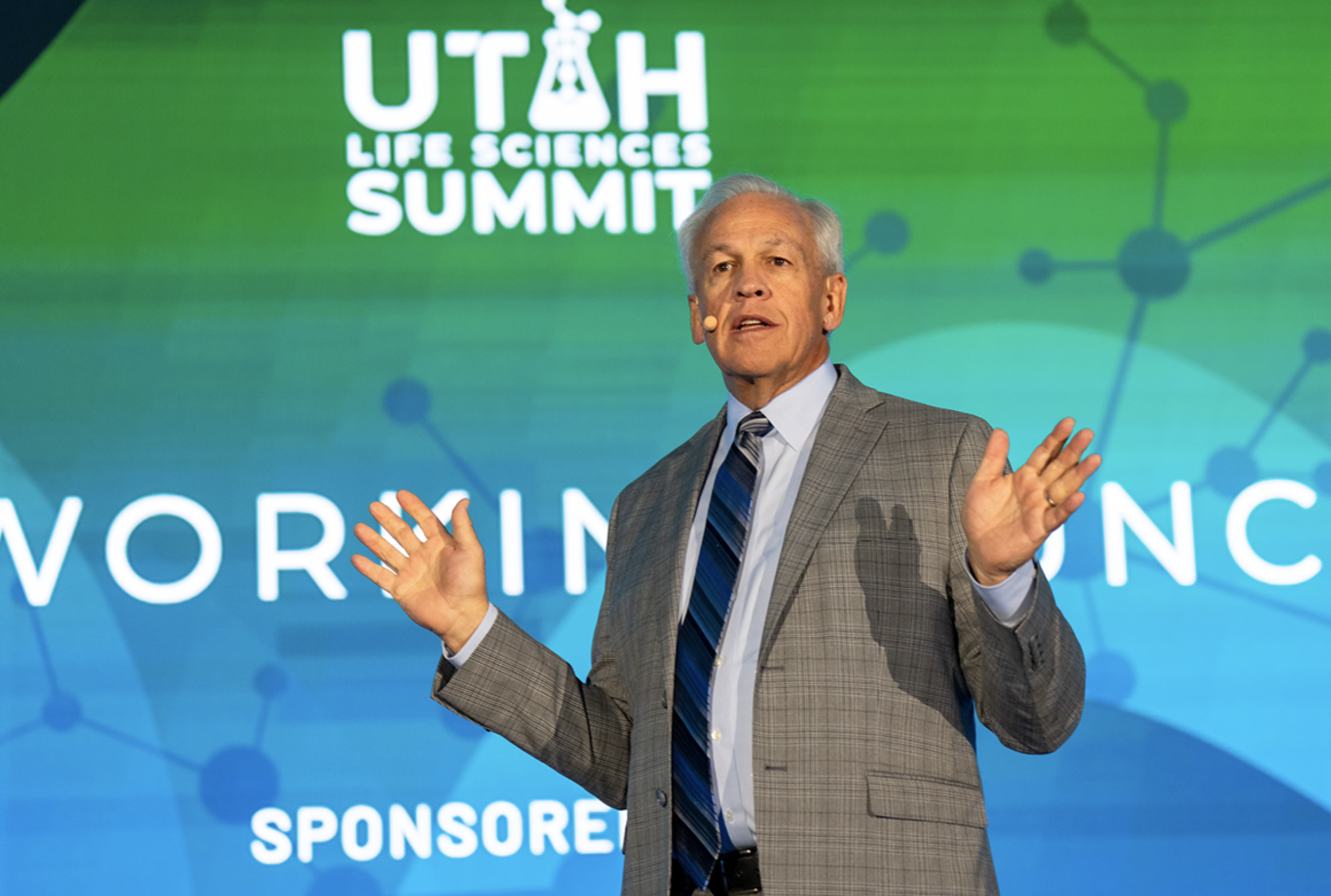

Salt Lake City, Utah, November 15, 2024
The annual Utah Life Sciences Summit, taking place at the Hilton Salt Lake City Center, convened science experts from across the state and the nation to showcase the latest advances in the life science industry and a deep look into life sciences in Utah. The event was presented by BioUtah and sponsored by the law firm of Mayer | Brown. Over 500 attendees gathered to network and listen to speakers from the private and public sectors present advances and accomplishments in biotech, women’s health, innovation in FDA, regulatory activitities, and legal/compliance issues.
BioUtah is a nonprofit 501 c (6) trade association that serves as a voice for the life sciences industry through events, advocacy, connection, and media platforms. It comprises medical devices, pharmaceuticals, biotechnology, and diagnostics. They connect with stakeholders, academia, government, and media to build advocacy, awareness, and to innovate the life sciences industry in Utah. Their vision is to make the state a destination for investment capital. The annual Life Sciences Summit is the industry's premiere event.
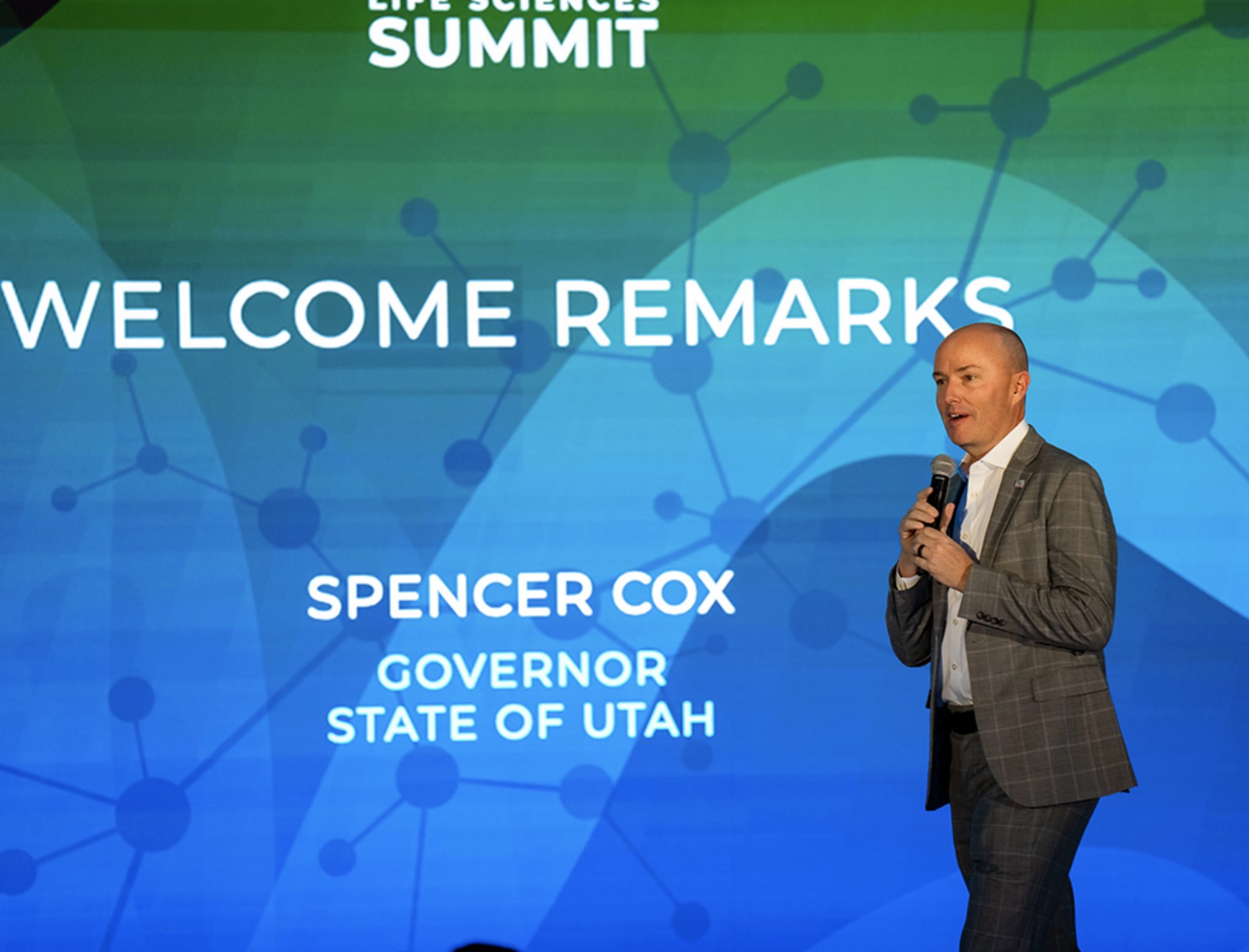
Governor Spencer J. Cox opened the summit by expressing his support for Utah's contribution to life science not just in the state, but globally. “People are living longer, healthier, and better lives all over the world because of companies right here in Utah.” He told attendees that the average wage is 50% higher in the life science industry for the state of Utah. Cox underscored Utah’s global recognition and economic success, attributing Utah’s top ranking to the innovative spirit of its people. He praised the industry’s innovations, such as computerized brain interaction technologies, and even shared a personal story about his siblings’ cystic fibrosis, emphasizing the life-saving impact of new medications such as cystic fibrosis drug, Trikafta.
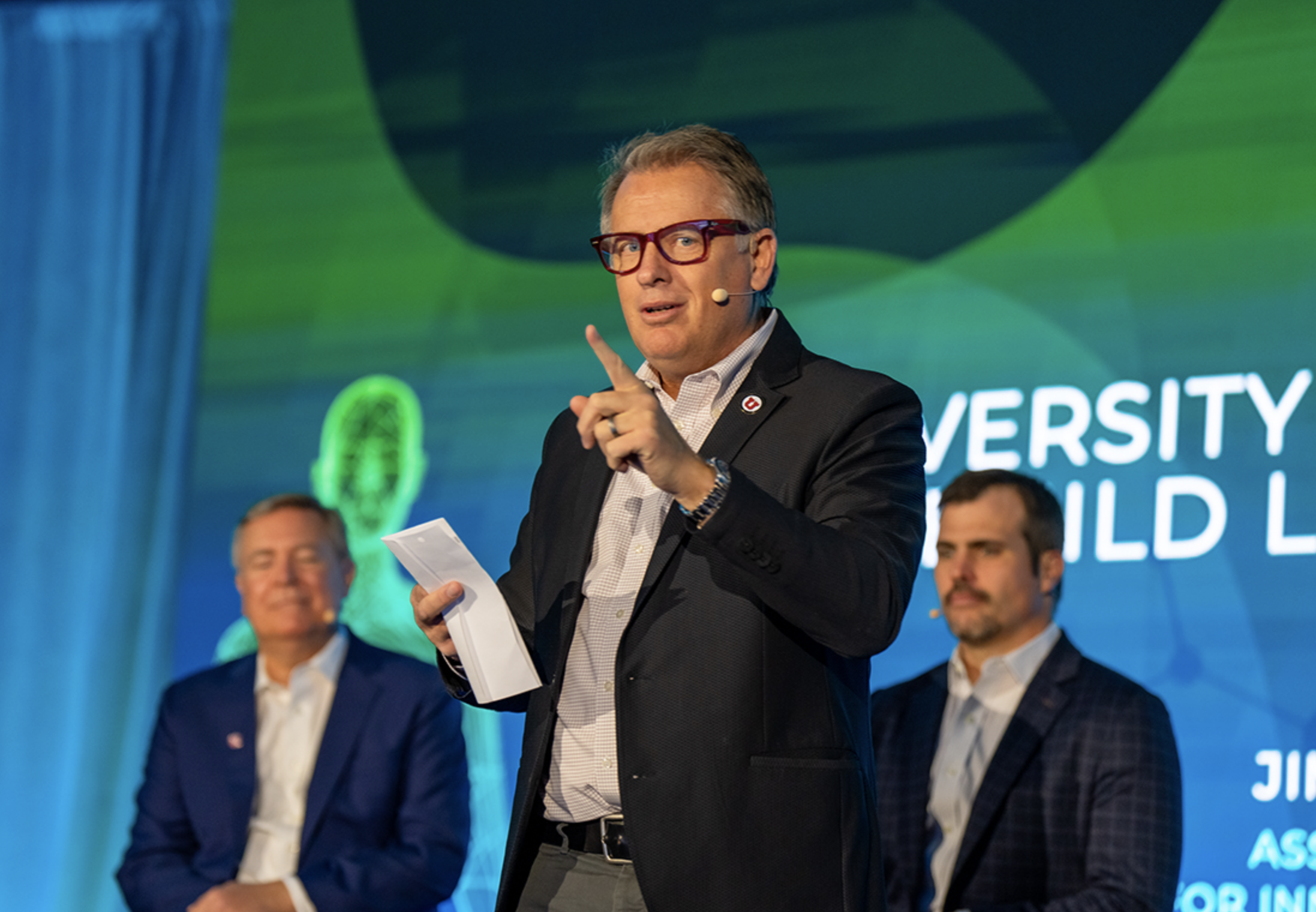
During one one of morning sessions, speakers from the University of Utah, including its president, Taylor Randall, presented contributions from the U that support life sciences in the state. The discussion included the following speakers:
- Taylor Randall - PhD, President of the University of Utah
- Jim Hotaling - MD, Associate VP of Research for Commercialization, University of Utah
- Mark Paul - Executive Director, Center for Medical Innovation at the University of Utah
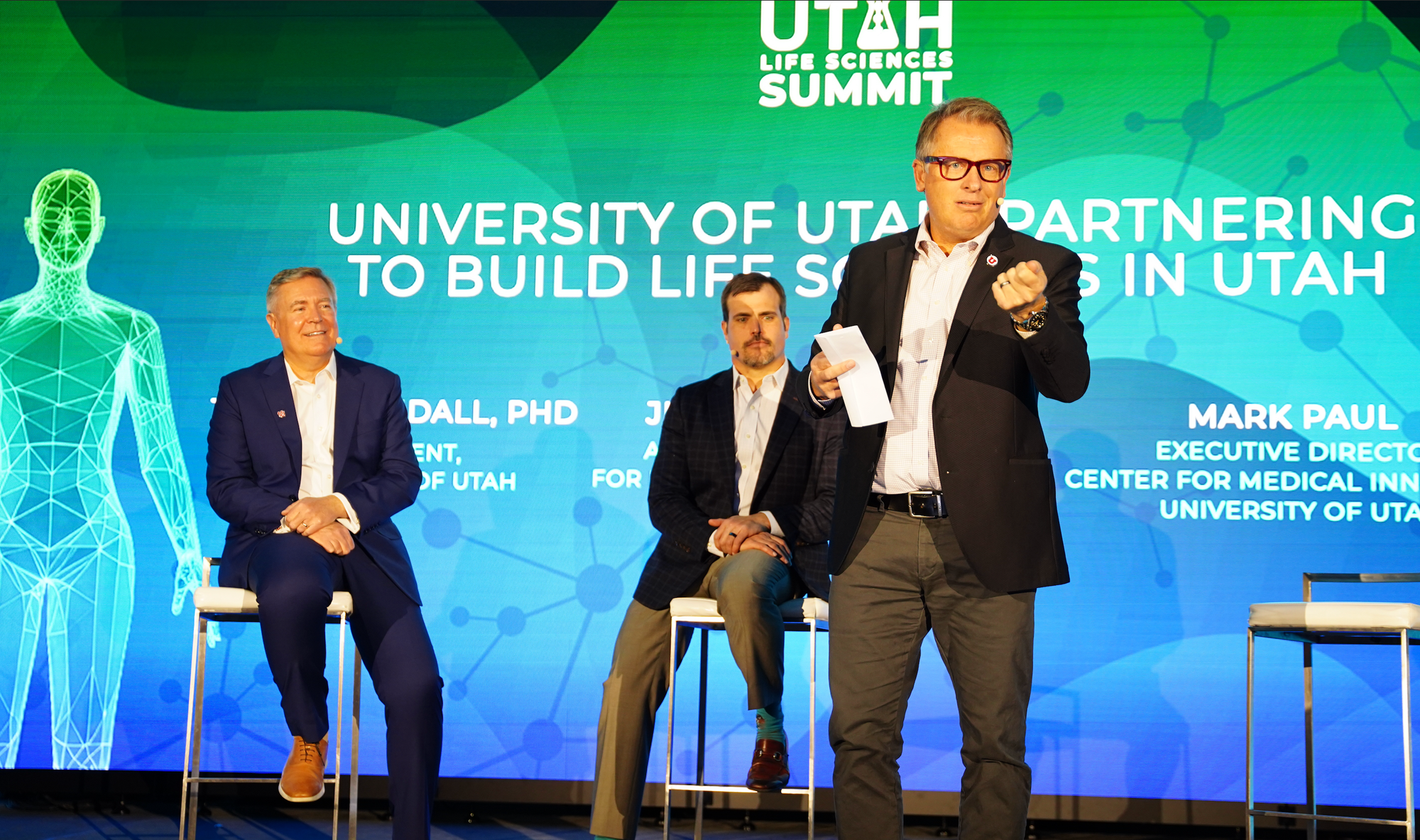
President Randall led the panel emphasizing the university’s commitment to life sciences and innovation. The panel highlighted the U's goal of fast turnaround times in licensing. "Our goal from the time a company reaches out to us and wants to license something is to have it done in 30 days," stated President Randall.
Mark Paul explained the Center for Medical Innovation's Med Tech Venture Studio, a novel "bench to bedside" program facilitating diverse startup teams from different departments whose common goal is to build useful medical devices that can be successfully vetted and then commercialized.
"These students come from every element of our campus—schools of engineering, business, law, medical school— and come up with their own medical device ideas," said Paul, describing the program. "These students are not employees of the State. They're not employees of the University of Utah. They keep all their IP. My program file provisional patents for them. The whole goal is to develop talent," explained Paul.
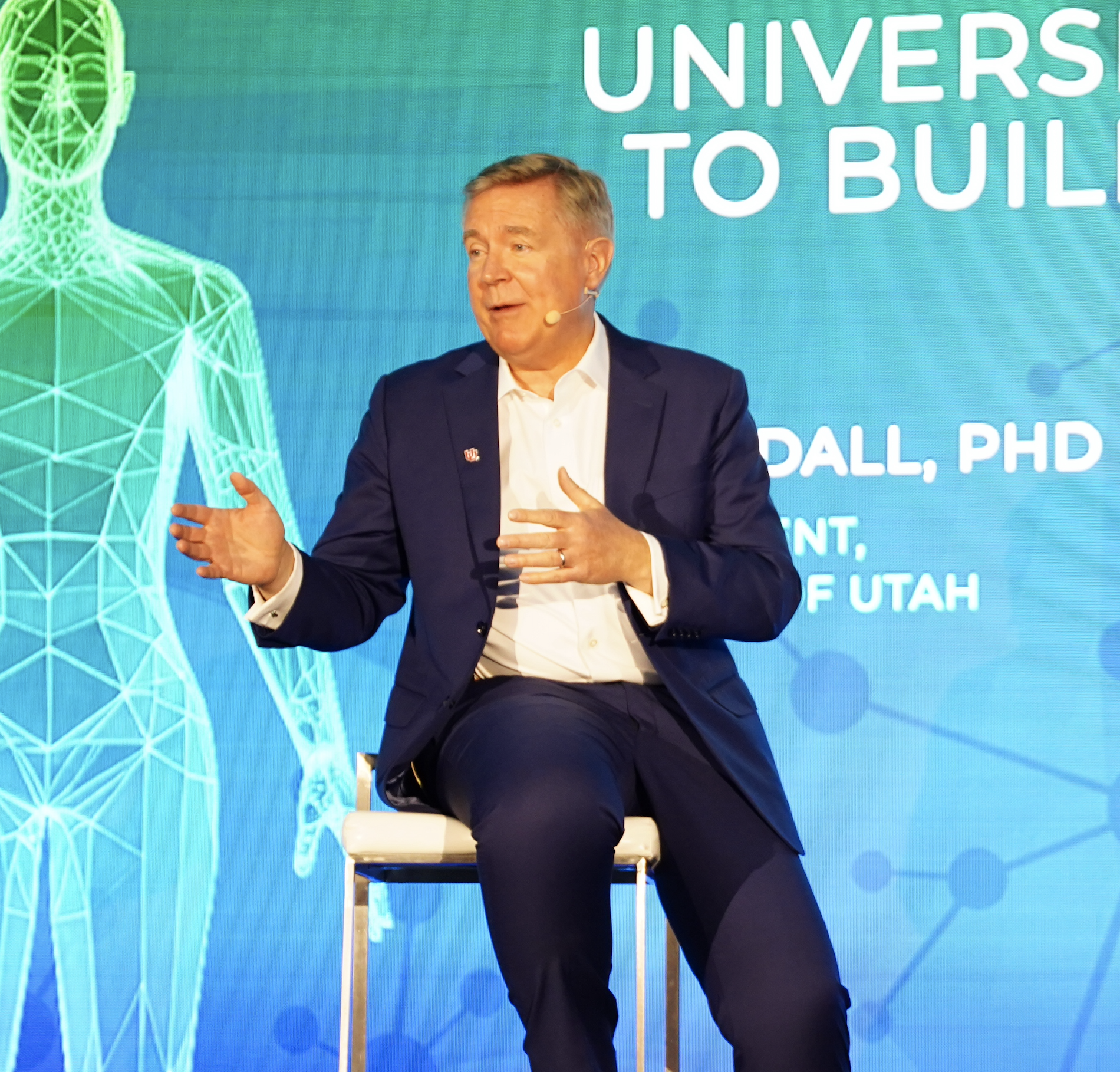
The program's home is the University's new $50 million Sorenson Center for Medical Innovation. It is the place where a diversity of disciplines intermingle and collectively contribute to the invention of groundbreaking medical technologies. Paul touches on the diversity point. "If you have a team of all engineers, they miss things. If you have a team of all MBAs, they miss things. The students do their best when they collaborate as a team of some business students, some medical students, some engineers of different specialties, even a law student. This is when they collectively come up with exceptional devices. And at the end of the year, in April, we have a huge contest with 30 to 40 different teams, 140 to 150 students. We invite all the other campuses on our in our state to participate. These are the students that will go on to change the world of medicine."
Explaining further, Paul stated, “The Center for Medical Innovation has been dramatically changed over the last 18 months. We provide services that build prototypes for the faculty that are on campus. But we also provide prototyping services and FDA support services regulatory fires for companies in the community.”
Paul stated that a critical part of the process is removing or at least mitigating risk from the deal. "We want to do is de-risk your idea, so that you can have a greater likelihood of commercialization as you progress," he said. "As you continue to de-risk, your idea begins to take root.”
Paul explained that the state has made a big commitment to support the project through a $30 million allotment, The Utah Innovation Fund, that can invest in startups that come from their campuses and organizations.
Further, the U has its own $200 million University of Utah Ventures fund through a partnership of Epic Ventures. The U of U continues to seek partnerships with companies and investors to gain funding for new projects and research.
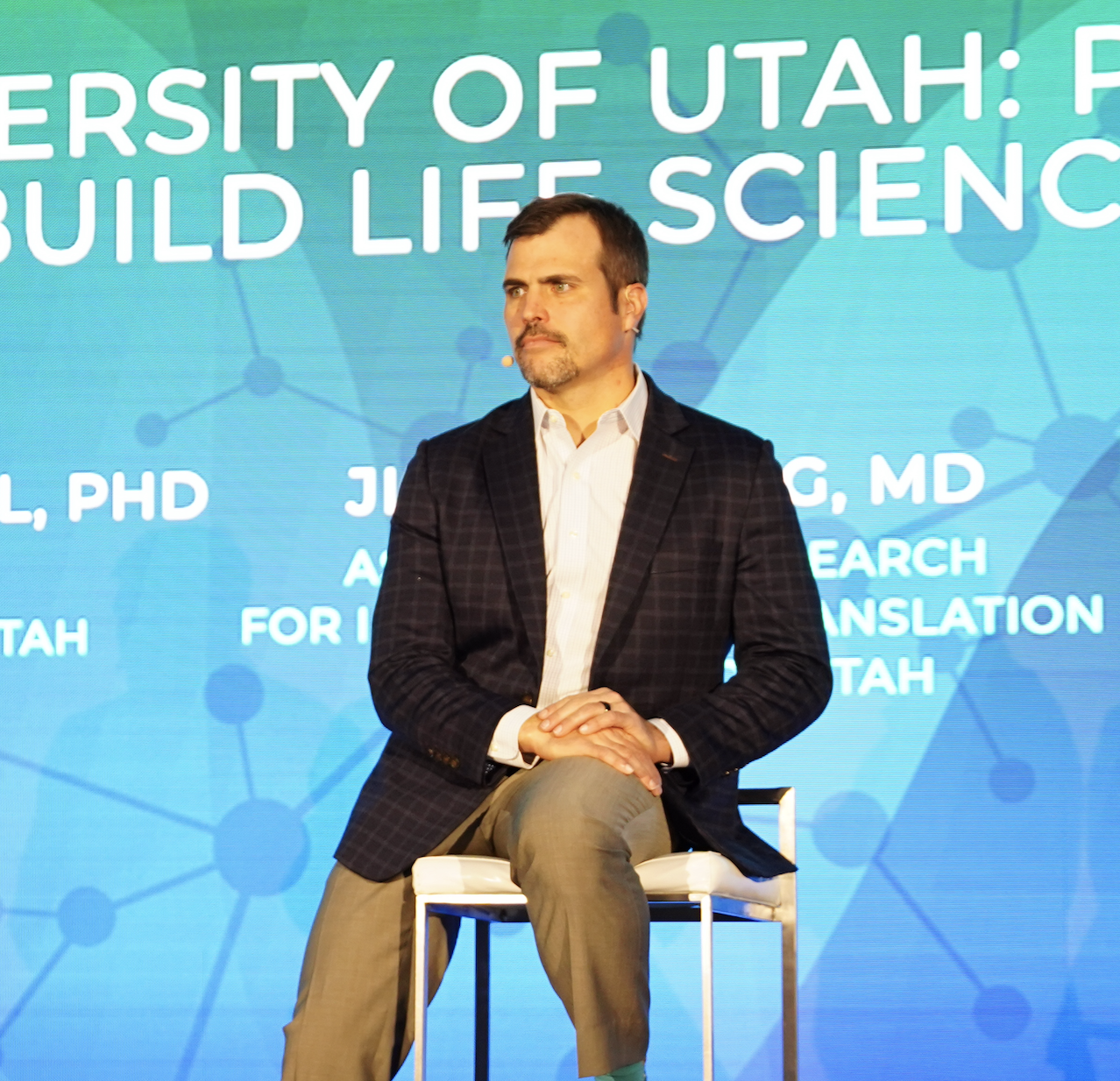
The panel welcomes any medical device inventor to partner with the university and use their facilities and resources. “You can come in and rent space and work with any faculty in your space, with the company’s resources; the university doesn’t make any claims on that.” They license technologies in addition to doing sponsored research for companies.
An available resource is the university’s pathology department. With a staff of 135, this lab ca process 100,000 samples a day. The lab has a track record of working with pharmaceutical companies for lab work and for clinical trials. The panel emphasized collaboration as a key determinant of successful outcomes. “Medical innovation, regardless of where it comes from, is always better with collaboration,” stated Dr. Hotaling. With the collaboration between academia and industry, the University of Utah hope to prepare students with real work experience and launch them into long-lasting careers in the life sciences that will enhance communities around the globe.
For more information about the 2024 Utah Life Sciences Summit, see the recap here.
For more information visit the University of Utah's Center for Medical Innovation website.
